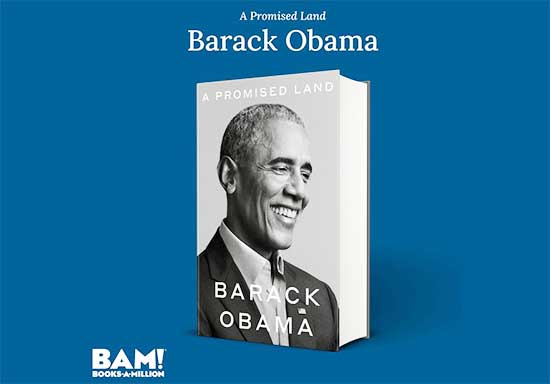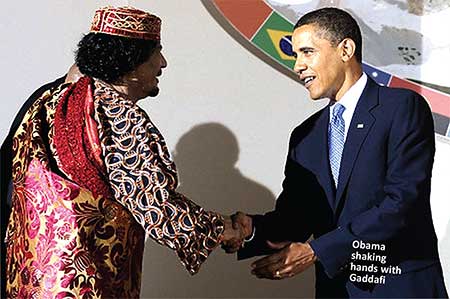Midweek Review
Is Obama a humanist?

By Dr Janaka Ratnasiri
Several reviews of President Barack Obama’ book, A Promised Land have recently appeared, and in one of them Obama is called a humanist. Is this true? A humanist, by definition, is a person having a strong interest in or concern for human welfare, values, and dignity. If one considers his deeds and words during his tenure as the US President, to what extent does he fit into this definition?
True, at the beginning of his tenure as the US President, he spoke about his Muslim ancestry in Kenya and about his wishes to live in peace with everyone, particularly with Muslims. In June 2009, President Obama told a gathering at the University of Cairo, “I’ve come here to Cairo to seek a new beginning between the United States and Muslims around the world, one based on mutual interest and mutual respect, and one based upon the truth that America and Islam are not exclusive and need not be in competition. Instead, they overlap, and share common principles — principles of justice and progress; tolerance and the dignity of all human beings”.
People had great expectation that Obama would steer the US along a new path leading towards peace, particularly diffusing the tension between America and the Muslim world. The expectations were so great that within 10 months of Obama swearing in as President, the Norwegian Nobel Committee awarded the Nobel Peace Prize for 2009 to him “for his extraordinary efforts to strengthen international diplomacy and cooperation between peoples”. It was obvious that the award was made not on any of his achievements like in the case of all other Nobel Prize winners, but solely on his rhetoric. It was a case of granting an award in anticipation because the Nobel Committee mistakenly thought Obama would deliver all what he promised during and after his election campaign.
The attack on US military headquarters, the Pentagon, on September 11, 2001, damaged the pride of America. It showed the world that the terrorists were indeed smarter than all the security advisors and the intelligence think tanks in the US. Not one of them had imagined that a civilian aircraft could be used as a weapon deadlier than an intercontinental ballistic missile loaded with nuclear warheads. The impact of the Pentagon attack was worse than the attack on the twin towers of the World Trade Centre where thousands of office workers and several rescue workers died.
In his address to Congressmen, Senators, Cabinet members and key security advisors made in May 2009, President Obama said, “My single most important responsibility as President is to keep the American people safe.” So, President Obama declared that he was going to attack any country, be it Pakistan, or East Africa and Southeast Asia or even Europe and the Gulf, suspected of providing refuge to terrorists. Now, who has given the authority for the US to attack any country from Europe to East Asia merely on suspicion of harbouring and training terrorists killing civilians in the process? Don’t human rights apply in such instances? Doesn’t this violate the ideals of the Nobel Committee, which has hitherto only recognized individuals or institutions that actually promoted peace on Earth?

President Obama started attacking Libya with no reason at all. President Muammar Gaddafi was not a threat to America by word or deed. So, why was he attacked? It is obvious that America had a hidden agenda. Certainly, such deeds cannot be expected of civilized countries practising religious faiths, let alone from Nobel Peace Laureates. Is Libya a better country now than what it was before Gaddafi was killed? The US military forces under the direction of President Obama during eight years of his tenure, launched air strikes or military raids in many countries including Afghanistan, Iraq, Iran, Syria, Libya, Yemen, Somalia and Pakistan, killing hundreds of thousands of unarmed civilians including women and children on the pretext of attacking terrorist hideouts. He also funded rebels in Iran and imposed trade sanctions which even affected Sri Lanka not being able to import crude oil from Iran. Could such a person be described as a humanist?
The US has spent over USD 6.4 trillion on post-9/11 wars and military action in the Middle East and Asia, according to a report from the Watson Institute of International and Public Affairs at Brown University, released in November 2019. The report also finds that more than 801,000 people have died as a direct result of fighting. Of those, more than 335,000 have been civilians. Another 21 million people have been displaced due to violence. Who is responsible for all these casualties? Can the US President be called a humanist?
While President Obama’s arrogance in military activities is well known; it was displayed by him in getting the entire world to change its plans for meeting the challenge of climate change to his liking merely to satisfy his ego, is little known. The Kyoto Protocol under Climate Change Convention imposed mandatory Greenhouse Gas emission reduction commitments amounting to an average of 5%, on developed countries beginning 2008 and ending in 2012. Various parties had submitted different proposals to enhance commitments on developed countries beyond 2012.
The Conference of Parties (COP) to the Climate Change Convention held in 2009 in Copenhagen, having considered these proposals, appointed a committee of five countries, Brazil, Russia, India, South Africa and China (BRISC) to recommend additional mandatory commitments both in terms of amounts and time frame the developed countries should be called upon to make beyond 2012. The developing countries on the other hand were not subject to any such mandatory commitments though they are also required to initiate action to reduce emissions to the extent feasible.
The BRICS Committee was having discussions behind closed doors up to the night of the last day of the conference. When the meeting was about to close, President Obama barged into the committee room and made an intervention. This was an unprecedented act and only President Obama could do, and there was no one in the room with the courage to show him the door. Instead, they accommodated him. Hitherto, countries like China and India protested vehemently while the US was trying to impose any emission restrictions on them. President Obama told the BRICS members that the US would mobilize USD 100 billion annually to help developing countries to undertake emission reduction projects if they undertook them voluntarily.
The COP took six years to finalise an agreement acceptable to all Parties on how to implement President Obama’s proposal. The Paris Agreement (PA) was the outcome of these negotiations and it was adopted at the COP meeting held in Paris in 2015. The main objective of PA is to reduce emissions enabling the global surface temperature to remain within two degree C beyond what it was at the turn of the last century. In keeping with President Obama’s pledge, many heads of states made undertakings at this meeting for providing finances during 2016-2020, totaling USD 48 billion. Among the key contributors are Japan (USD 10B), EU (USD 11B), UK (USD 8.7B), France (USD 6.6B), Italy (USD 4 B) and USA (USD 4B) (UNFCCC website).
In his address to the Plenary, President Obama came out with the motive for his proposal. He said that while the US would initiate actions to reduce emissions the way they want but without being told by others how to do it. So, the entire developing countries are now called upon to undertake emission reductions voluntarily while releasing developed countries from their mandatory reduction targets. Even the least developing countries with hardly any emissions are now called upon to submit reports to the Climate Change Secretariat describing their activities undertaken to reduce emissions. Even the funding is not given on a platter, but will have to be requested by submitting detailed project proposals. Sri Lanka is still struggling to prepare these proposals.
It is noteworthy that the US, which spearheaded the abolition of mandatory emission reductions by developed countries and getting developing countries on board with them on the promise of mobilizing USD 100 billion annually by 2020, pledged only a paltry USD 4 billion as contributions up to 2020. During President Donald Trump’s tenure, the US withdrew from the Paris Agreement leaving the developing countries high and dry, with no money forthcoming as pledged by president Obama. Now, under President Joe Biden, the US may re-enter Paris Agreement and make firm commitments towards emission reductions and also towards the Climate Fund.
Up to end of 2020, the Climate Fund had collected only USD 22 Billion; another USD 58 Billion had been mobilised through other sources making available USD 80 Billion for disbursement among developing countries, which is nowhere close to USD 500 Billion promised by President Obama up to 2020. He could have stopped at offering increased funding to developing countries to get them to agree on voluntary commitments, without removing the mandatory emission reduction commitments on developed countries already in force. This, he did merely to satisfy his ego as admitted by him. Can such a person be called a humanist?
According to a report issued by the National Geographic Society in November 2019, the majority of the carbon emission reduction pledges for 2030 that 184 countries made voluntarily under the Paris Agreement aren’t nearly enough to keep global warming well below the two-degrees-Celsius target, and it is likely that the world is on a pathway to between 3 and 4 degrees C by the end of this century. That pathway risks triggering natural feedbacks such as massive thawing of permafrost or widespread forest die-offs, which could lead to additional uncontrollable warming. Scientists have called this the Hothouse Earth scenario, where sea levels could rise 10 to 60 meters and large parts of the planet become uninhabitable. The day this happens, people will curse President Obama.